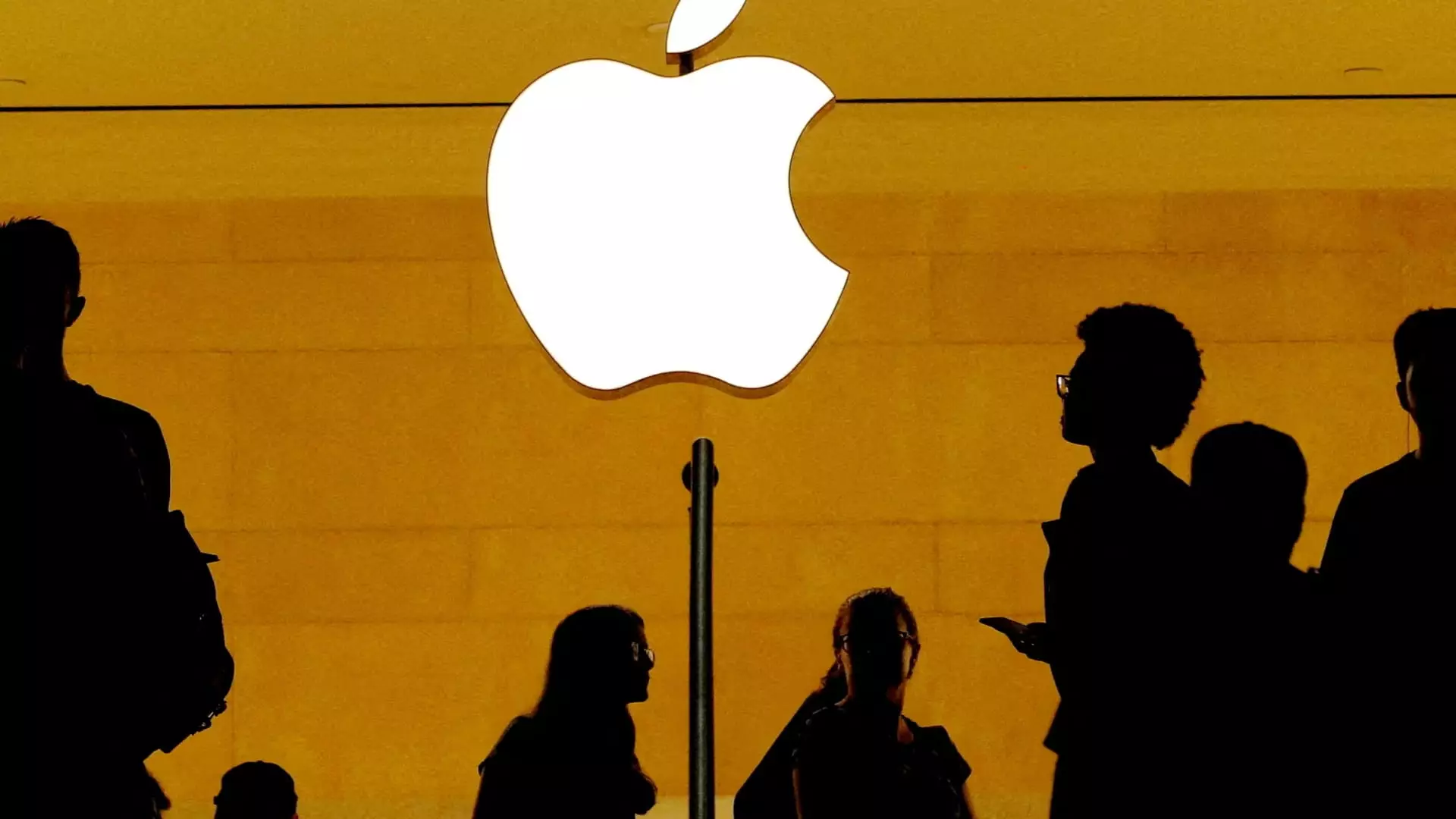The stock market often serves as a reflective surface for the economy, displaying the fluctuating fortunes of various corporations. Recently, several well-known companies have made headlines due to their financial performance, sparking discussions among investors and analysts alike. This article delves into the factors influencing these stock movements, the implications for future growth, and what they signify about the broader economic landscape.
Alphabet, the parent company of Google, experienced a notable decline of 7% in its stock price after revealing fourth-quarter revenues of $96.47 billion, which fell slightly short of analysts’ expectations of $96.56 billion. While this news might seem disheartening, Alphabet’s plans to invest a staggering $75 billion in 2025 to further its artificial intelligence strategy reflect a robust commitment to innovation. Analysts anticipated a more modest investment of $58.84 billion, indicating that Alphabet sees AI as integral to its future growth. This juxtaposition between immediate revenue shortfalls and long-term investment intrigue keeps investors cautiously optimistic; however, the immediate reaction suggests a hesitance to embrace uncertainty.
Uber’s stock fell by 5%, despite the company reporting a fourth-quarter revenue of $11.96 billion that surpassed expectations. The real concern for investors stemmed from Uber’s warning about the potential impacts of a strong dollar on its first-quarter gross bookings. Although the financial performance was commendable, this cautionary tone raises red flags about the company’s ability to sustain momentum in an increasingly competitive market. Uber’s experience highlights the delicate balance between celebrating short-term successes and addressing the challenges that may hinder future growth.
Chipotle Mexican Grill saw its shares decrease by approximately 4.9% following disappointing same-store sales growth. While the fast-food chain beat earnings per share estimates, expectations for low- to mid-single-digit growth in same-store sales for fiscal 2025 cast a shadow over its near-term prospects. Despite affirming their revenue for the quarter at $2.85 billion, the outlook signals a potential cooling in consumer appetite, prompting an assessment of Chipotle’s marketing and customer engagement strategies moving forward.
The Chinese e-commerce platform, PDD, encountered significant volatility as its stock plummeted by 7.1%. This drop was instigated by the U.S. Postal Service’s temporary suspension of inbound packages from China and Hong Kong, a critical issue for a company reliant on efficient logistics. The suspension raised concerns over PDD’s operational capacity and market expansion strategies. However, as the USPS reversed this decision, the immediate panic seemed to settle. Still, this incident serves as a vital reminder of the fragility within global supply chains and the impact that regulatory actions can have on international businesses.
Apple and Johnson Controls International showcased contrasting fortunes in the market. Apple’s stock dipped 2% amid rumors of scrutiny from Chinese regulators regarding its app store practices. This potential investigation highlights the ongoing geopolitical tensions that can impact tech giants. Meanwhile, Johnson Controls soared nearly 8% after exceeding earnings expectations, showcasing the resilience of companies that can adapt to changing market conditions.
In the consumer goods sector, Mondelez International and Mattel represented the divergent trends where Mondelez fell over 4% due to disappointing earnings predictions, while Mattel surged approximately 13.5% after outperforming expectations. These moves illustrate that the market doesn’t react uniformly; rather, it distinguishes between companies based on their operational effectiveness and market conditions.
The recent fluctuations in stock prices among various companies highlight the ongoing complexity of the economic environment. From Alphabet’s ambitious AI investments to Uber’s cautious growth outlook, these movements signal that while immediate results may vary, the broader strategic approaches will ultimately determine long-term success.
As companies navigate supply chain disruptions, regulatory scrutiny, and shifting consumer preferences, the market’s reaction serves as both a barometer of confidence and a warning against complacency. Investors remain on high alert, not just for quarterly results but for the adaptable strategies that corporations deploy to foster resilience in an ever-evolving landscape. Thus, while the headline numbers may sway the market initially, the unfolding narrative of each company will dictate their trajectory in the months and years to come.

